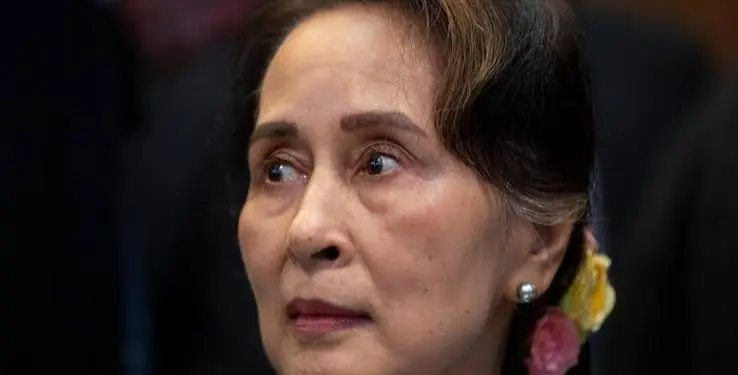Aung San Suu Kyi
Myanmar military court led by the country’s junta has sentenced Aung San Suu Kyi to a further seven years in prison, taking her overall jail time to 33 years.
Since then, she has gone through 18 months of phony trials for 19 accusations, according to rights organizations.
Last week, the UN Security Council demanded her release.
She was given a sentence on Friday for the last five accusations she had to face. She was found guilty of corruption by a court because she violated the law when she rented a helicopter for a government minister.
She had already received 14 prior convictions for offenses like breaking Covid public safety regulations, bringing in walkie-talkies, and breaking the Official Secrets Act.
This year, her trials have been held in secret, with no access allowed for the public or media, and neither she nor her attorneys are permitted to speak to the press. She has refuted each and every accusation.
The 77-year-old Nobel laureate has spent the majority of her life in house arrest in Nay Pyi Taw, the nation’s capital.
More than 16,600 people, including Ms. Suu Kyi and several party members, have been detained by the junta since they took over; 13,000 of them are still behind bars, according to the Assistance Association for Political Prisoners (Burma).
The UN Security Council demanded last week that all political prisoners be released and that there be a stop to the violence in Myanmar.
Following changes to the resolution’s text, China and Russia did not participate in the voting and did not exercise their veto authority.
The “relentless judicial attack” against Ms. Suu Kyi, according to Amnesty International, demonstrates how the military has “weaponized the courts to bring politically motivated or absurd allegations against opponents.”
After the military violently took control in February, there were several protests, which led the military of Myanmar to repress protestors and activists who called for democracy.
Additionally, it led to a resurgence of internal combat among several ethnic rebel groups, a civilian force opposing the junta and military leadership.
Airstrikes on civilian settlements and unlawful deaths have been blamed on the junta. The military’s campaign against dissent is thought to have resulted in the deaths of more than 2,600 people so far.


Comment here